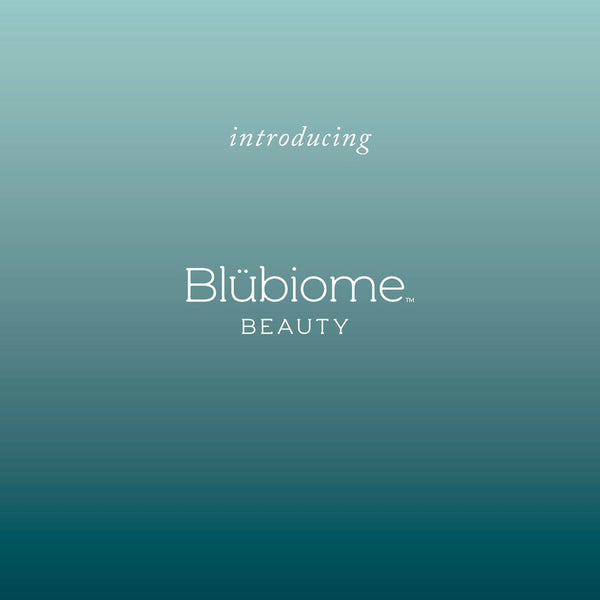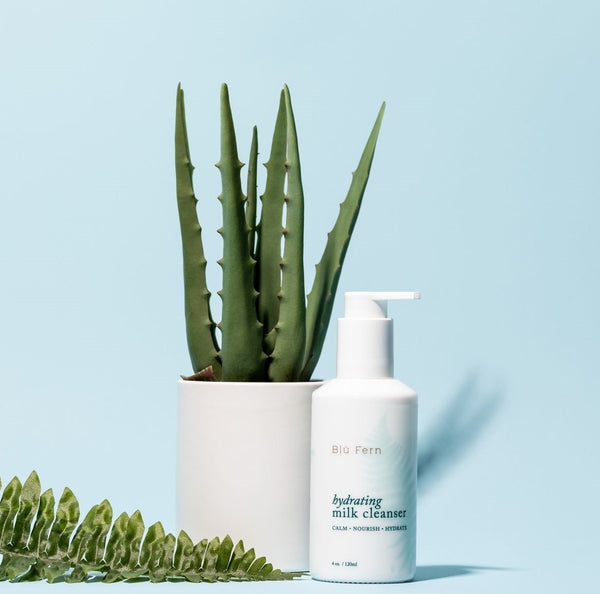Have you ever noticed that the more stressed out you are, the more your skin acts out? A few extra pimples start to form or maybe your psoriasis flares up. It's almost like your skin is trying to add an extra layer of stress into your life just when you thought things couldn't get any more stressful.
Your skin's not trying to cause you any more stress. It's simply reacting to the stress you're already experiencing.
Scientific studies have shown that there is a correlation between the high cortisol levels your body creates when under stress and unwanted skin conditions such as acne, psoriasis, atopic dermatitis, eczema and rosacea.
The Connection Between Stress and Skin Inflammation
When you're stressed, your brain starts releasing a stress hormone called cortisol. Your skin has receptors that activate when they come in contact with cortisol.
Unfortunately, the reaction your skin has to cortisol isn't a positive one.
Together with the microbiome, your skin has many different types of cells, and one type of cell is called mast cell. Mast cells are activated by cortisol, and they act as the master cell when it comes to how your skin reacts to the increased stress.
Mast cells have a number of different hormones and chemicals that are activated when you're stressed. Most of these hormones and chemicals are inflammatory and cause your skin to act out.
Essentially, when you're stressed out, your brain creates a hormone that wakes up a part of your skin that normally isn't active.
That newly awoken part of your skin senses that things aren't normal in your body and inflames your skin as a way to try to tell you that things aren't working normally within your body.
The Most Common Skin Conditions Associated with Stress
There are a number of different skin conditions that can be worsened or developed when you're stressed. There are too many to cover in this article, but these are the most common.
Psoriasis
Psoriasis is a chronic skin inflammatory disease. It is characterized by red and itchy skin especially on the elbows, knees, and scalp.
While stress won't give you psoriasis, it can make your psoriasis worse and potentially cause a negative cycle where your psoriasis keeps getting worse even with treatment.
Acne
Unless you're one of the very few blessed people in the world, you've likely suffered from acne at some point in your life.
Most people think acne is caused by clogged pores, there is mounting research to show that increased stress can cause acne.
Inflammation underneath your skin can cause breakouts. Increased cortisol levels have also been linked to increased sebum production, which is another important chemical for acne.
Atopic Dermatitis
Atopic dermatitis (commonly referred to as eczema) is similar to psoriasis. It is a chronic inflammatory skin disease that results in itchy skin.
Atopic dermatitis is a complex disease that develops as a result of your genetics, environment, and immune system.
Just like psoriasis, stress won't make you develop atopic dermatitis, but it can make your symptoms much worse.
Stress changes your skin cell's natural environment and levels, and the changes can make your atopic dermatosis flare up and become painful.
How to Reduce the Effect Stress has on Your Skin
Now that you understand why your skin reacts negatively when you're stressed, it's important to understand what you can do to reduce the impact stress has on your skin.
The first thing you need to know is there isn't one method that has been proven to reduce skin inflammation caused by stress.
The second thing you need to know is that it's okay to be stressed. It happens to everybody, so don't get stressed about being stressed. Instead, learn how to manage your stress and work through it.
Next, try to reduce your stress levels. The best way to reduce your skin's reaction to stress is try to limit the amount of cortisol your body is creating.
Here are a few things to try:
- Drink lots of water
- Meditate
- Exercise
- Go for a walk
- Learn to say no
- Reduce stress triggers that are in your control
- Continue your normal skincare routine and tweak as needed
- Set realistic goals
It is important you practice mindfulness and listen to what your body is telling you. If you try one of the techniques on that list, and it isn't helping, try something new.
When it comes to skincare, it is important to use gentle products that won't aggravate your already inflamed skin or disrupted skin.
Try using our natural plant-based skincare line, Blu Fern, to help keep your skin calm, balanced and properly nourished. Our entire line is free of toxins, fillers, synthetic chemicals, parabens and artificial fragrances.
 Skip to content
Skip to content




